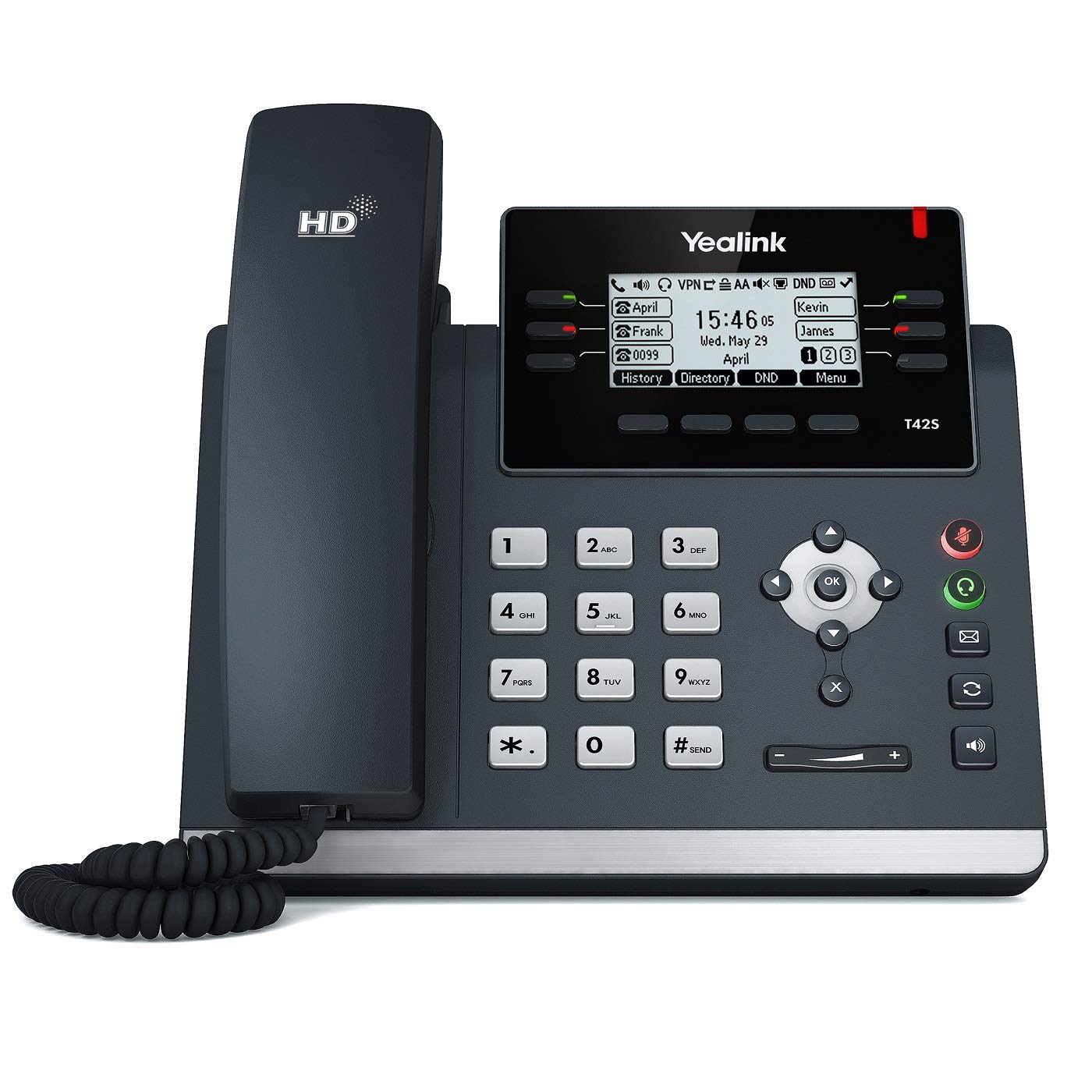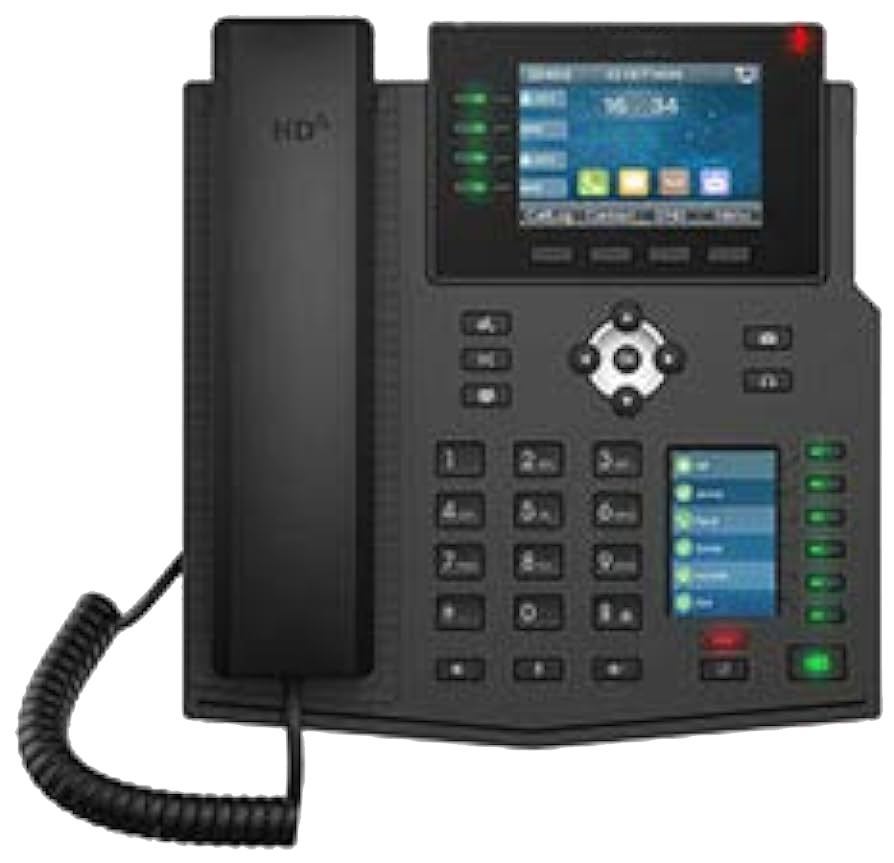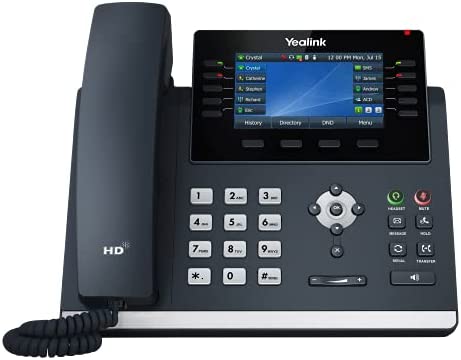Discover the pros and cons of VoIP and landline phone systems for business. Make an informed choice for seamless upgrade and cost savings
Explore the Differences Between VoIP and Landlines
In today’s modern age, communication plays a critical role in the success of any business. Traditional landline phone systems have been a mainstay in offices for decades, providing reliable and familiar means of communication. However, as technology continues to advance, Voice over Internet Protocol (VoIP) phone systems have emerged as a modern alternative, offering a wide range of benefits and capabilities. In this article, we will explore the differences between VoIP and landlines, highlighting the advantages and disadvantages of each option.
1. Traditional Landline Phone Systems “A Familiar Choice”
Traditional landline phone systems have long been trusted for their ease of use and reliability.
- Familiarity and simplicity: Businesses have relied on landlines for years, as they offer a straightforward and user-friendly experience.
- Established infrastructure: Landlines operate using copper wires and physical connections, providing a stable and consistent connection.
- Limited mobility: Landlines are tied to a specific location and lack the flexibility to work remotely.
2. The Rise of VoIP Phone Systems “Embracing a Digital Future”
VoIP phone systems have transformed communication by leveraging the power of the internet and digital technology.
- Flexibility and mobility: VoIP systems allow employees to work from anywhere, providing freedom and flexibility.
- Cost savings: VoIP calls are significantly cheaper than traditional landline calls, especially for long-distance or international communication.
- Enhanced features: VoIP offers a wide range of advanced features, such as call forwarding, voicemail-to-email transcription, and virtual phone numbers.
- Integration capabilities: VoIP systems seamlessly integrate with other communication tools like chat and video conferencing, streamlining collaboration.
3. Overcoming the Clunkiness of Some VoIP Systems
While VoIP systems offer numerous advantages, it’s important to acknowledge that not all implementations are created equal.
- User-friendliness: Some VoIP systems can be clunky and challenging to use, requiring complex procedures for call transfers.
- Improved call management: VoiceOne PBX, a VoIP solution, bridges the gap between traditional landlines and modern VoIP systems, providing a user-friendly interface with powerful call management features.
- Shared hold buttons: VoiceOne PBX offers shared hold buttons similar to traditional landline systems, simplifying call handoffs and enhancing user experience.
4. Expanding Connectivity with VoIP Systems
VoIP systems excel in connecting calls to offsite individuals and offering seamless call transfers.
- Increased call transfer options: Unlike landlines, VoIP allows for effortless call transfers to mobile phones or answering services, improving efficiency and accessibility.
- Lower call costs: VoIP calls are more cost-effective, and businesses can save substantially on telecommunications expenses.
- Remote maintenance: VoIP systems enable remote maintenance, reducing the need for onsite visits from technicians and minimizing downtime.
VoIP vs Land Line Phone Systems
It is a fact that traditional line phone systems have served businesses reliably for many years, VoIP phone systems have emerged as a powerful alternative. The flexibility, cost savings, and advanced features offered by VoIP make it an attractive choice for modern businesses. Although some VoIP systems may have been perceived as clunky in the past, solutions like VoiceOne PBX bridge the gap between the familiarity of traditional landlines and the advancements of VoIP technology. By embracing VoIP, businesses can unlock new possibilities and improve communication efficiency while reducing costs.
FAQs (Frequently Asked Questions)
1. Can I still keep my existing phone number when switching to a VoIP system? Yes, most VoIP service providers allow you to port your existing phone number to their system, ensuring a seamless transition.
2. Are VoIP calls reliable, or do they suffer from call quality issues?
Certainly! Apologies for the oversight. Here’s the continuation of the article in English:
2. Are VoIP calls reliable, or do they suffer from call quality issues?
VoIP calls can be highly reliable and offer excellent call quality. However, the quality of VoIP calls can depend on various factors, including the stability and bandwidth of your internet connection. It’s important to have a reliable and high-speed internet connection to ensure optimal call quality. Additionally, using quality VoIP service providers and implementing proper network configurations can further enhance call reliability and minimize call quality issues.
3. What equipment do I need to set up a VoIP system?
Setting up a VoIP system is relatively simple and requires minimal equipment. Generally, you will need IP phones or softphones (software-based phone applications), a reliable internet connection, and a VoIP service provider. IP phones can be connected directly to your network, while softphones can be installed on your computer or smartphone. The VoIP service provider will handle the call routing and provide the necessary infrastructure for your system.
4. Can I use VoIP systems for video conferencing?
Yes, VoIP systems often include video conferencing capabilities, allowing businesses to conduct virtual meetings and collaborate effectively. Video conferencing features can range from basic one-on-one video calls to large-scale conferences with multiple participants. By leveraging VoIP technology, businesses can save on the costs of dedicated video conferencing solutions and streamline their communication processes.
5. Are VoIP systems secure?
VoIP systems can be secure if proper security measures are implemented. Just like any other internet-connected technology, VoIP systems may be vulnerable to certain risks, such as unauthorized access and data breaches. To ensure the security of your VoIP system, it is important to choose a reputable VoIP service provider that implements robust security protocols, including encryption and authentication. Additionally, implementing network security measures, such as firewalls and regular software updates, can further enhance the security of your VoIP infrastructure.
6. Can I use VoIP systems on my mobile devices?
Yes, VoIP systems can be used on mobile devices through dedicated apps or softphone applications. These apps allow you to make and receive calls using your VoIP system on your smartphone or tablet. By utilizing mobile VoIP, businesses can enable their employees to stay connected and productive even when they are on the go, providing flexibility and mobility.
As we exploring the differences between VoIP and landlines highlights the vast benefits that VoIP phone systems offer to businesses. With its flexibility, cost savings, and advanced features, VoIP has become an attractive choice for modern communication needs. While traditional landline systems have their merits, the advancements in VoIP technology have made it a compelling option. By carefully selecting a reliable VoIP service provider and ensuring a stable internet connection, businesses can unlock the full potential of VoIP systems and enjoy enhanced communication efficiency and cost savings.
6. Can I use VoIP systems on my mobile devices?
Yes, VoIP systems can be easily integrated and used on mobile devices. With the availability of dedicated apps or softphone applications, you can transform your smartphone or tablet into a powerful VoIP device. These apps allow you to make and receive calls using your VoIP system directly on your mobile device. By utilizing mobile VoIP, businesses can enable their employees to stay connected and productive even when they are on the go, providing flexibility and mobility in their communication.
7. What are the cost savings associated with VoIP systems?
One of the significant advantages of VoIP systems is the potential for cost savings. Compared to traditional landlines, VoIP calls are generally more cost-effective, especially for long-distance or international communication. VoIP utilizes the internet as the underlying infrastructure, eliminating the need for separate networks and reducing the costs associated with maintaining physical phone lines. Additionally, many VoIP service providers offer competitive pricing plans and packages that cater to the specific needs of businesses, allowing them to save on communication expenses.
8. How does remote maintenance work with VoIP systems?
VoIP systems offer the convenience of remote maintenance, reducing the need for onsite visits from technicians and minimizing downtime. Since VoIP relies on digital technology and internet connectivity, system updates, configuration changes, and troubleshooting can often be performed remotely. This not only saves time and resources but also allows businesses to address any issues promptly and efficiently. Remote maintenance also enables service providers to offer quick customer support, ensuring a smooth and uninterrupted communication experience.
9. Can VoIP systems integrate with other business tools and applications?
Yes, VoIP systems are highly versatile and can integrate seamlessly with other business tools and applications. Many VoIP service providers offer integrations with popular collaboration platforms, such as chat applications and video conferencing tools. This integration allows for streamlined communication and collaboration, enabling employees to access a comprehensive suite of communication tools from a single interface. By connecting VoIP with other business applications, companies can enhance productivity and efficiency within their operations.
10. What factors should I consider when choosing a VoIP service provider?
When selecting a VoIP service provider, several factors should be taken into consideration:
- Reliability and uptime: Ensure that the provider offers a reliable service with minimal downtime.
- Call quality: Look for providers that prioritize call quality and offer HD voice capabilities.
- Security: Choose a provider that implements robust security measures, such as encryption and authentication protocols, to protect your communication data.
- Scalability: Consider whether the provider can accommodate the growth of your business and provide scalability options as needed.
- Customer support: Evaluate the level of customer support provided by the provider, ensuring that they are responsive and capable of addressing any issues or concerns promptly.
VoIP phone systems have emerged as a modern alternative to traditional landlines, offering businesses increased flexibility, cost savings, and advanced features. While landlines have served as reliable communication tools in the past, the advantages of VoIP, such as mobility, lower costs, and integration capabilities, make it a compelling choice for businesses of all sizes. By embracing VoIP technology and choosing a reputable service provider, businesses can enhance their communication efficiency, improve collaboration, and pave the way for future growth and success.
This has been another Internet Phone System review article about the comparison between line phone systems and VoIP for Business. We hoped this has helped you in your journey to learn about VoIP and Cloud Phone Systems.


